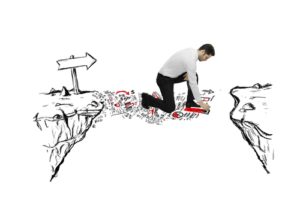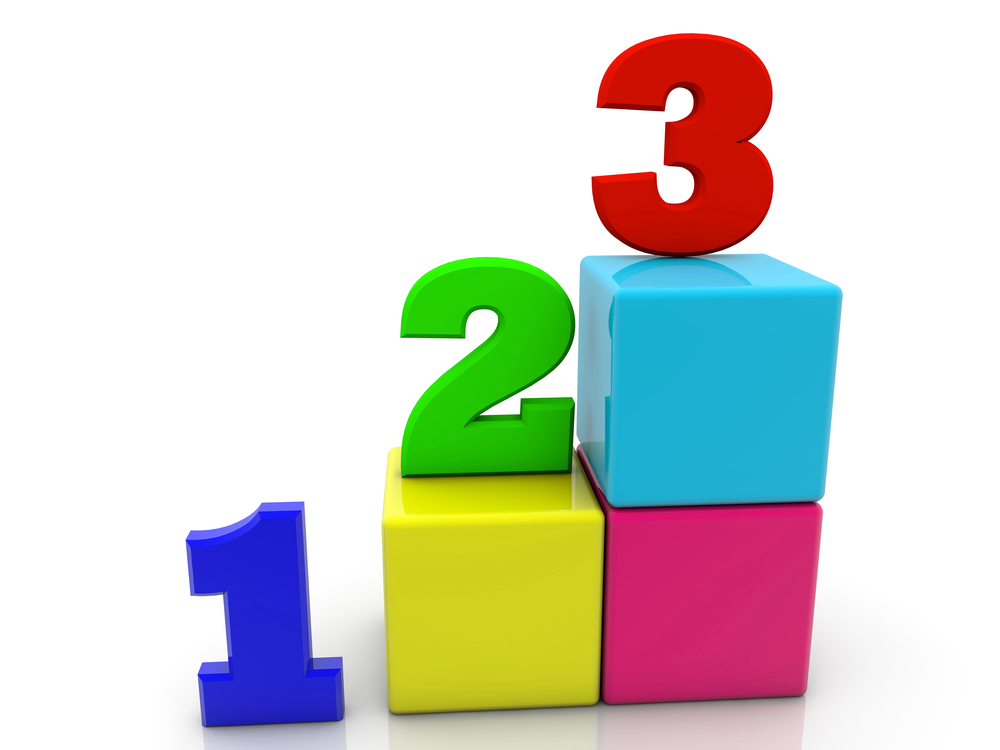 I first wrote this article in 2017 and have now significantly revised.
I first wrote this article in 2017 and have now significantly revised.
In this article, you’ll read about three types of Trust (x 3) and be able to determine how comfortable you are embracing each type.
I’m sharing part of the updated material from my “Ten Characteristics of MCC Skill Level” product – which is great learning for coaches of any skill and experience to level-up their coaching.
Trust (x 3)
Trust is such an important component in coaching that ICF has a competency dedicated to it, Core Competency #4: Cultivates Trust and Safety. The definition being, “Partners with the client to create a safe, supportive environment that allows the client to share freely. Maintains a relationship of mutual respect and trust.”
Trust is a deep concept to explore because our ability to trust others varies greatly by individual life experiences, and the meaning we make about our ability to trust others based on those experiences. As we are in the human development field, we need to be learning about and understand human behavior, so we can be effective in our domain of professional coaching. Including being able to identify when a client may benefit from additional support outside of a coaching relationship, and how to have that conversation with a client in a way that maintains their trust.
A coach engages in continuous personal and professional development (ICF Core Competency #2: Embodies a Coaching Mindset) so they can ‘meet the moment’ of any client situation.
A Firm Belief…
Here’s an (Oxford) dictionary definition of trust: “a firm belief in the reliability, truth, ability, or strength of someone or something.” 
A firm belief. That seems to succinctly describe a common characteristic of the three aspects of trust I’m seeking to convey: Trust (x 3).
- Trust (x 1). A firm belief that your client has more self-knowledge and wisdom than they first think they have.
- Trust (x 2). A firm belief in yourself to be responsive to your client as their coach.
- Trust (x 3). A firm belief that the coaching process is enough to deliver the client exceptional results.
Below is more on each of the three types of Trust:
 Trust (x 1). A firm belief that your client has more self-knowledge and wisdom than they first think they have.
Trust (x 1). A firm belief that your client has more self-knowledge and wisdom than they first think they have.
When our client brings their challenge or opportunity to discuss in their coaching session, they may not have spoken out loud what they are thinking or feeling. Perhaps they haven’t made time to do that, or don’t have someone they feel they can trust to speak with. They haven’t ‘heard’ themselves, until they begin speaking with their coach about their challenge or opportunity.
Their coach intentionally allows space for their client to speak out loud, which is an act of respect we give to each client; to allow them space to consider, reflect and express whatever they want to.
The client soon realizes they know more about themselves and their situation than they first believed – because their coach is supporting their client to connect to their self-knowledge and wisdom. A coach does this by asking open-ended questions that allow the client to reflect and explore their answer. Or offer an observation, then intentionally allow space for the client to consider and respond however they want to.
The more the coach trusts the client has their own knowledge and wisdom, the more the client feels free to share. Which often leads to the client realizing they have knowledge and wisdom to translate into action in a way that is authentic to them. The coach trusts the client solutions are enough. And if the coach feels a need to add their own solutions, would likely be to satisfy some aspect of the coach’s ego.
Note: When we participate in coach training, we often hear the idea that our client has all the answers within them and our role is to help them connect with those answers. Yet it’s not always true that the client has all the answers within them, even after connecting with their self knowledge and wisdom. Yet we still have a firm belief in our client to find their way. This may include the client doing further research (reading books, searching online, speaking to someone) Or their coach could skillfully offer some knowledge in response, and convey trust to the client in their ability to determine what works for them, or not.
 Trust (x 2). A firm belief in yourself to be responsive to your client as their coach.
Trust (x 2). A firm belief in yourself to be responsive to your client as their coach.
Every action we take, and every response we have is a building block of trust. First, we want to provide safety; that our client can freely share what is so for them, without fear of judgment or retribution. As we model presence, connection, and partnering from the beginning of each coaching session, we are sowing the seeds for deeper trust to occur, which can feel very intimate, vulnerable (and scary) to some clients (and some coaches).
The more our client trusts that we are a non-judgmental partner, the more that is possible for the client to discover about themselves, and for themselves. We can influence our client’s level of trust in us by our way of being with and responding to them.
To be responsive as a coach, we need to have our default mindset setting be; to trust in the masterful use of our coaching presence and our coaching skills. The coach is expert at trusting their ability to use the appropriate coaching skill at the appropriate time. This includes knowing when to intentionally remain silent for longer, when to ask a customized and responsive open-ended question, and when to offer their observation for the client to consider the relevance for themselves.
The coach trusts in their ability to explain their coaching approach, including how and when their coach may offer their own knowledge, expertise or experiences.
 Trust (x 3). A firm belief that the coaching process is enough to deliver the client exceptional results.
Trust (x 3). A firm belief that the coaching process is enough to deliver the client exceptional results.
Aside from being masterful at coaching presence and coaching skills, the coach needs to know how to structure a coaching engagement, and how to structure every coaching session around a client-driven purpose and agenda. The coach then needs to be able to easefully explain the coaching process, and re-explain as often as necessary, so the client knows how to use their coaching session for their maximum benefit.
When I learned how to structure a coaching session and be able to explain in a few minutes to any client, I significantly increased my confidence to deliver a consistent high quality coaching service to my clients. This is because the client and I both know what is expected, and can measure how successful each coaching session is according to the client criteria for success.
Inhibitors of Trust in Self as Coach
Inhibitors of self-trust by the coach occur because of a combination of beliefs, experiences, and self-image.  The coach may believe they add value to the client by sharing their subject matter expertise. Or sharing their experiences in a similar role or situation the client is experiencing. Or the coach’s self-image is of someone who delivers results, meaning I have to deliver the answers the client will be successful with according to my experience and what was successful for me.
The coach may believe they add value to the client by sharing their subject matter expertise. Or sharing their experiences in a similar role or situation the client is experiencing. Or the coach’s self-image is of someone who delivers results, meaning I have to deliver the answers the client will be successful with according to my experience and what was successful for me.
Many clients want tips, tools or advice from their coach, which validates the coach to easily ‘take their coaching hat off’ and slip into advice-giver at any moment. At those choice points, what the coach chooses to respond with determines if the coach trusts themselves as a coach, or not.
There is a time and way for the coach to potentially share their knowledge and expertise, yet it’s often not necessary for the coach who trusts their client self-knowledge and wisdom first, and trusts the coaching process is enough.
The challenge with easily defaulting to sharing what the coach knows, is the client is robbed of the opportunity to first discover what they know, and trust their unique and authentic ways of approaching their situation.
Example of Trust (x3)
A coaching structure begins with knowing the client objectives (goals, intentions) for engaging in coaching, including knowing how the client will measure success. I explore “What” and “Who” measures with each client.  For example, a What measure may be preparing for a presentation to senior leaders. A Who measure may be to feel prepared and confident, including in their ability to respond to questions from senior leaders at any time during the presentation. With the bigger objective for coaching being to uplevel their ability to deliver engaging presentations that inspire and motivate others to act.
For example, a What measure may be preparing for a presentation to senior leaders. A Who measure may be to feel prepared and confident, including in their ability to respond to questions from senior leaders at any time during the presentation. With the bigger objective for coaching being to uplevel their ability to deliver engaging presentations that inspire and motivate others to act.
Without knowing what the client wants to achieve in each coaching session, there may be a great conversation, yet for what purpose? Knowing how the client will measure session success is also important, so the client can determine how successful the coaching session was for them. Again, include a What and Who measure.
As the session progresses, the coach checks on progress toward the client desired session outcome/s. This gives the client an opportunity to pause, reflect, and consider. The client response will then determine how to proceed, including if the direction of the conversation needs to change from the client perspective.
Near the end of the session, the coach can inquire about client progress made toward their measure of session success (What and Who), as well as inquire about client learning. Most clients have insights and learning beyond what they expected.
By having a coaching process and coaching structure that is known to both coach and client, there is shared understanding of what is expected by both. The client brings their topic, the coach inquires and clarifies their desired outcome about their topic/s. The coach inquires about session progress and learning, the client will be able to gauge how successful the session was for them. If not as successful as the client wanted, coach and client can engage in open conversation about what to adjust.
In Closing…
As coaches, we are given the amazing opportunity to support the people we coach to become more confident in their ability to solve and resolve their situations in ways that are authentic to them.
Every client wants results; coaching provides a unique opportunity to use skills that support the client to feel self-empowered, because when the client has awareness as a result of the coaching process, the client most often feels more motivated to act on what they’ve discovered themselves. We can learn how to trust our client’s wisdom more, trust in our coaching presence and coaching skills. And trust the coaching process is enough to deliver the client exceptional results.
Every minute of every coaching session is an opportunity for trust to be built – to create a safe, supportive environment for our client to share freely. As development-oriented coaches, we can reflect on how confident we feel in practicing these three types of trust, and continue to develop our capacity and capability to be even more competent as a coach.
Written by Carly Anderson, MCC
Are you ready to upgrade your coaching skills, prepare for your next ICF credential, or renew your credential?
The Mentor Coaching Group Program is an ICF approved individual / group mentor coaching program. Approved for 30 of ICF Core Competency CCEs, including 10 hours of mentor coaching. For comparison between my MCC program, and Level 3, go to Q6 on FAQs page
Mentor Coaching Programs Now Open!
Visit this page for more information
 I offer a rich, experiential mentor coaching group and individual program that has many exclusive offerings for participants. You can read some testimonials from real people,FAQs, or find out more about The Mentor Coaching Program here
I offer a rich, experiential mentor coaching group and individual program that has many exclusive offerings for participants. You can read some testimonials from real people,FAQs, or find out more about The Mentor Coaching Program here
I offer other products including The Upgraded Target Approach: Illuminating the ICF Core Competencies, as well as Ten Characteristics of MCC Skill Level. And a very unique opportunity to hear 15 consecutive coaching sessions with one of my clients in the Butterfly on the Wall Coaching Series.
A long term experienced and continuously active MCC Assessor since 2005, assessing and mentoring for all 3 credential levels. I have listened to and evaluated over 2,000 coaching session recordings between ICF assessing and my mentor coaching clients. Including being trained to assess using ICF ACC BARS Behaviors, PCC Markers, and MCC BARS Behaviors. As at September 2025, 225 of the coaches I’ve mentored for their MCC preparation have passed ICF MCC exam process (that I know of), as well as hundreds of coaches passed their ACC and PCC exam process. I do my best to communicate ICF publicly available credential information in a simple manner. Mentoring Supervision clients have access to an incredible and exclusive member-only library that includes 40+ coaching recordings that have actually passed ICF MCC, PCC and ACC credential process.
I’m passionate about supporting the professionalism of coaching, which includes often engaging in ICF projects as a volunteer to continue to develop and evolve our profession.

 Trust (x 1). A firm belief that your client has more self-knowledge and wisdom than they first think they have.
Trust (x 1). A firm belief that your client has more self-knowledge and wisdom than they first think they have.